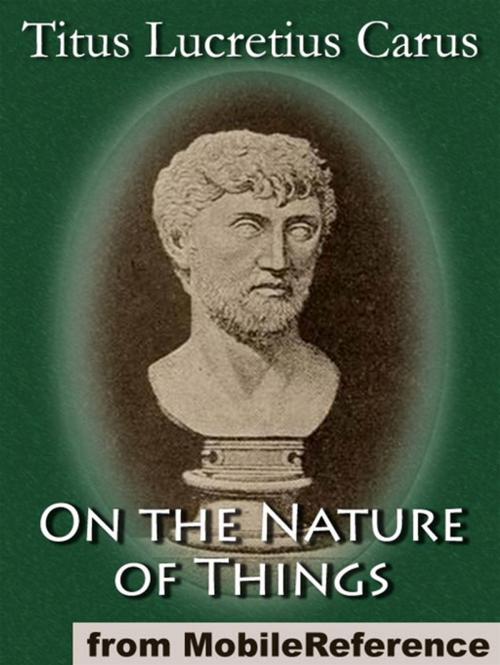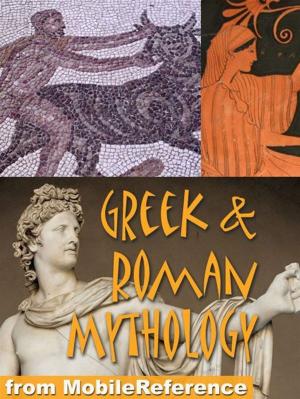On The Nature Of Things (Mobi Classics)
Fiction & Literature, Poetry, Nonfiction, Religion & Spirituality, Philosophy| Author: | Titus Lucretius Carus, William Ellery Leonard (Translator) | ISBN: | 9781607783992 |
| Publisher: | MobileReference | Publication: | January 1, 2010 |
| Imprint: | MobileReference | Language: | English |
| Author: | Titus Lucretius Carus, William Ellery Leonard (Translator) |
| ISBN: | 9781607783992 |
| Publisher: | MobileReference |
| Publication: | January 1, 2010 |
| Imprint: | MobileReference |
| Language: | English |
De Rerum Natura is a first century BC epic poem by the Roman poet and philosopher Lucretius with the goal of explaining Epicurean philosophy to a Roman audience. The poem, written in dactylic hexameter, is divided into six books, and concentrates heavily on Epicurean physics. It deals with the principles of atomism; the nature of the mind and soul; explanations of sensation and thought; the development of the world and its phenomena; and explains a variety of celestial and terrestrial phenomena. The poem grandly proclaims the reality of our role in a universe which is ruled by chance, with no interference from gods. It is a statement of personal responsibility in a world in which everyone is driven by hungers and passions with which they were born and do not understand. Excerpted from Wikipedia, the free encyclopedia.
De Rerum Natura is a first century BC epic poem by the Roman poet and philosopher Lucretius with the goal of explaining Epicurean philosophy to a Roman audience. The poem, written in dactylic hexameter, is divided into six books, and concentrates heavily on Epicurean physics. It deals with the principles of atomism; the nature of the mind and soul; explanations of sensation and thought; the development of the world and its phenomena; and explains a variety of celestial and terrestrial phenomena. The poem grandly proclaims the reality of our role in a universe which is ruled by chance, with no interference from gods. It is a statement of personal responsibility in a world in which everyone is driven by hungers and passions with which they were born and do not understand. Excerpted from Wikipedia, the free encyclopedia.















